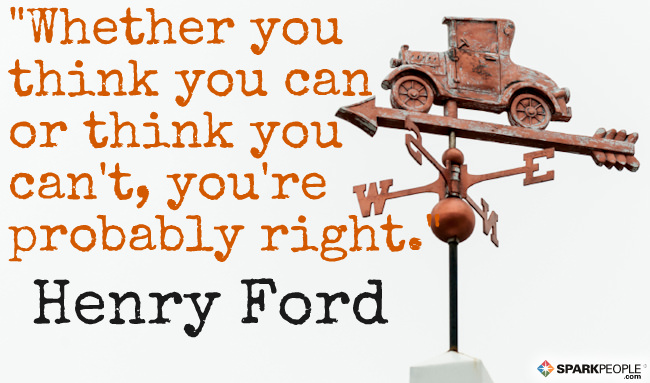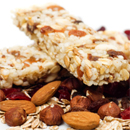12 Ways to Increase Metabolism
 Your metabolic rate is essentially a measure of the amount of calories you burn every day.
Your metabolic rate is essentially a measure of the amount of calories you burn every day.
The number of calories you burn varies and is influenced by several factors (read more about how to increase the calories you burn every day). Knowing what these factors are will allow you to:
- Manipulate the amount of calories you burn
- Avoid inadvertently burning fewer calories, i.e. help you avoid slowing down your metabolism
- Will help you increase your metabolism
12 WAYS TO INCREASE METABOLISM
The good news is that there are 12 ways by which you can increase your metabolism! Food, exercise and other lifestyle choices have a significant impact on your metabolism. The more of these factors you are able to incorporate into your lifestyle, the more you’ll increase your metabolism and experience greater fat loss and importantly permanent fat loss.
1. AVOID VERY LOW CALORIE DIETS
On very low calorie diets, you are essentially starving yourself. While logically no one is able to maintain such a diet as part of a lifestyle change and those who do risk serious damage to their health, very low calorie diets generally do not work. Why? It triggers the starvation protection mechanism, which causes you to lose a lot of water weight, some muscle tissue and very little fat. How does it do it? Not knowing that McDonald’s is only around the next corner, your body panics and takes some extreme protective measures to ensure your survival, which appears to be in jeopardy since your body has registered that there is insufficient food around. Therefore, your body proceeds to protect its fat reserves in case things get worse later and uses muscle for fuel instead of fat. It also instigates a number of complicated measures to decrease the amount of energy your body needs for its essential functions. In other words it slows down your metabolism. Kinda counterproductive?!
2. EAT LITTLE AND OFTEN
Eating around 6 small meals per day with each meal consisting of a combination of protein, carbs and fat. On a calorie controlled diet you eat fewer calories than normal. Therefore, you need to provide your body with food every fewer hours helps avoid triggering the starvation protection mechanism. Research suggests that small, regular meals throughout the day, instead of one or two large meals, can increase your metabolism. In fact, evidence shows that people who eat every 2 to 3 hours have less body fat and faster metabolisms than those who eat only 2 or 3 meals per day. Also, about 10% of the calories we burn each day goes on digesting and absorbing food – so the more times you eat, the greater this effect is likely to be. Small, but frequent meals should form part of your daily metabolism-boosting plan.
3. INCREASE METABOLISM BY EATING BREAKFAST
Breakfast → break fast → breaking the fast. Yes, you have been fasting through the night. Therefore, especially when you are dieting you should eat something for breakfast to avoid triggering a slowdown in metabolism. You need not go as far as breakfasting like a king, but should definitely try eating a small breakfast at the very least. A low calorie meal replacement shake, fruit or cereal are options, though incorporate some protein into your meal.
4. INCREASE METABOLISM BY EATING PROTEIN- & FIBER-RICH FOODS
Our body has to use energy to digest, break down and absorb the food we eat. Some foods require more energy to break down than others. Research suggests that approximately 25% of calories in a protein-rich meal are burnt off. Your body has to burn more energy to digest protein than it does to digest fat or carbohydrate. Furthermore, protein will help build muscle and reduce loss of muscle mass that occurs on weight loss diets. Remember, muscle burns calories and increases metabolism. Therefore, a protein-rich diet acts to increase your metabolism by (1) requiring more energy for digestion than other foods and (2) by building metabolism boosting muscle tissue. Make sure you choose low-fat protein options such as lean meat, skinless chicken and low-fat dairy products. Fiber-rich foods are also excellent metabolism boosters. Fiber is not digestible, still your body works very hard trying to break it down. This uses up energy and increases metabolism in the process.
5. CARDIOVASCULAR EXERCISE
There is no way to get around exercise. While calorie-restricted diet decreases metabolism, exercise increases metabolism. Exercise is the only way to truly get the most of calorie restriction. Where dieting results in loss of muscle, exercise increases muscle or at the very least during dieting stops the loss of muscle mass. Exercise has short and long-term effects on metabolism.Exercise increases metabolism for a hours after exercise and increases metabolism by increasing muscle mass. High intensity interval training is the best exercise technique to increase metabolism, as it has the greatest effect on metabolism and is incredibly efficient. HIIT can burn an extra 100 to 200 after your workout.
-
Whats in Your Weight Destiny? The Set Point Theory
Most people notice that they feel their best, and at their peak pe
-
Robotic Gastric Bypass Surgery Shows Promise
Weight Loss and Gastric Bypass Surgery A system that allows surgeons t
-
Herbal Weight Loss Pills: Should You Make use of Them
Have anyone been attempting to lose weight with the use of work out
-
Medication Orlistat, Coupled with Weight-Loss Techniques, Appear Improving Weight Management for Obese Adolescents
What is critical to determine is whether the weight loss achieved by t
-
5 Workouts That will Support You get Match – Melt away 300 Calories in 30 Minutes
Burning 300 calories within half an hour is quick should you just conc
-
Are artificial sweeteners safe?
Ask the doctor Q: My doctor advised me to give up my soda ha
- DON'T MISS
- Natural Weight Loss for Healthy Living
- Rose Oil - A Gift From The Flowers Of Love
- Four Painless Ways to Lose Weight Immediately
- Losing Weight With Diet Pills Are They Effective
- I Lost 160 Pounds 3 Years Ago. Heres How Ive Kept The Weight Off
- How to Remove Love Handles
- How to Mix Foods To Help Lose Weight
- Boresha Fat Burning Coffee
- Fatty liver and diabetes risks for liver fibrosis
- Losing weight Compounds Obtained in Weight loss Supplements




